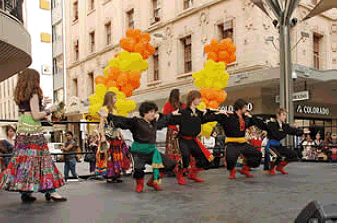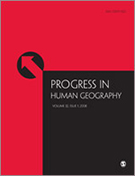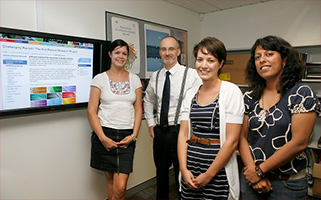The Local Anti-Racism Project
 An influential finding from the Challenging Racism Project (CRP) was that while racism is quite prevalent in Australian society its occurrences vary across space and different spheres of life. Racism is expressed in each region and sphere of life in highly specific ways, and anti-racism should reflect that variation. The project tested the utility of anti-racism templates in rural and urban Australia. The templates were tested for usability by local authorities and NGOs in framing their anti-racism efforts. To aid local anti-racism initiatives, the Challenging Racism Project reviewed the various forms of anti-racism programs that have been employed at the local level.
An influential finding from the Challenging Racism Project (CRP) was that while racism is quite prevalent in Australian society its occurrences vary across space and different spheres of life. Racism is expressed in each region and sphere of life in highly specific ways, and anti-racism should reflect that variation. The project tested the utility of anti-racism templates in rural and urban Australia. The templates were tested for usability by local authorities and NGOs in framing their anti-racism efforts. To aid local anti-racism initiatives, the Challenging Racism Project reviewed the various forms of anti-racism programs that have been employed at the local level.
CRP were invited to address the Human Rights and Equal Opportunity Commission (HREOC) Racism and Civil Society: A National Summit. The resulting report called upon Governments "to implement a program involving local councils, local consultations and local action plans to address racism locally", and they recommended "local governments and local communities do the same". Our presentation made a significant contribution to the final report that the HREOC took to the World Conference Against Racism in Durban (see 2001:30,44). We presented a Keynote Address to the Racisms in the New World Order Conference in Brisbane (9 Dec 2005). The conference communiqué recommended the "[n]eed to recognise the high variability of racism across regions, and to address issues of local history and context as well as local opportunities and barriers to anti-racism". 17 specific forms of local anti-racism were identified and analysed by CRP. Assessment of their relevance, effect and reference to resources were provided. From more information about these anti-racism strategies and resources please see our 'Anti-Racism Initiatives' page.
Key Findings
Local stakeholders perceive the data and resources to be locally relevant and useful for the following reasons: to build the case for programs or for funding bids; to challenge and stimulate interest; as a form of checklist against which local (in)action can be assessed; to provide a stronger illumination of the specific local issues; and to facilitate networking and sharing potential. There was an agreement that anti-racism was under-evaluated, due to a lack of resources / time, and a lack of knowledge about how to evaluate programs.
Key questions surrounded: the extent to which the resources we have developed were 'local' enough (Were they too top-down?); the risk of stigmatising / stereotyping place; and the difficulties that local stakeholders had with speaking about racism and using that concept. Localized responses to racism under neoliberalism can be associated with deracialized and depoliticized policies on interethnic community relations. Neoliberal anti-racism promotes competition among local agencies rather than coalition building and is associated with spatially uneven and non-strategic action.
 Publications
Publications
Nelson, J. & Dunn, Kevin M (2016). "Neoliberal anti-racism: Responding to 'everywhere but different' racism", Progress in Human Geography, DOI: 10.1177/0309132515627019.
Dunn, K., Gandhi, V., & White, A. (2010). Understanding Racism and Cultural Diversity: 2007 South Australia Racism Survey: A report prepared for the Equal Opportunity Commission South Australia, University of Western Sydney, Sydney. ISBN 978-1-74108-209-8.
Pedersen, A., Walker, I., Paradies, Y., & Guerrin, B. (2011). “How to cook rice: Ingredients for teaching anti-prejudice”, Australian Psychologist, vol. 46, no. 1, pp. 55-63.
'Cookbook' of anti-racism strategies and resources
- Celebrations of cultural diversity
- Provide accurate information to dispel false beliefs
- Engage local residents in conversations and consultations
- Leverage emotions
- Emphasis Commonality and Difference
- Social and cultural context
- Dissonance
- Evaluation
- Building and Evoking Social Norms
- Arranging appropriate Contact
- Describing self and group identities
- Finding Alternative Talk
- The Source and Function of Attitudes
- Everyday Anti-Racism
- Addressing Racism Structurally / Institutionally
- Increasing Organizational Accountability
- Using Social Media and Marketing
 Project Team
Project Team
- Professor Kevin Dunn (Western Sydney University)
- Professor Yin Paradies (Deakin University)
- Dr Anne Pederson (Murdoch University)
- Professor Hurriyet Babacan (James Cook University)
- Dr Jacqueline Nelson (Univesity of Technology Sydney)
Project Partners and Funding
The project was funded by an ARC Linkage Grant. Partner organisations included Human Rights and Equal Opportunity Commission, Equal Opportunity Commission South Australia and Victorian Equal Opportunity and Human Rights Commission.
Mobile options:

